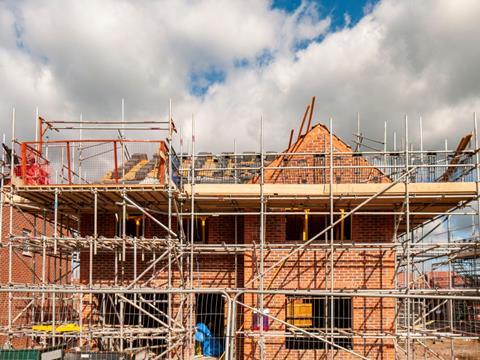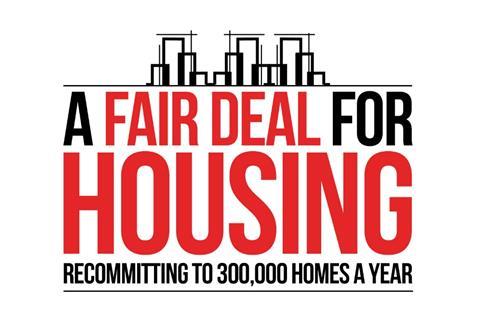Ahead of the general election, the NHF and Shelter are urging political parties to commit to a long-term plan which prioritises social housing
The next government could boost the economy by £51.2bn and generate £12bn in savings by building 90,000 social homes per year for 10 years, a report commissioned by the National Housing Federation (NHF) and Shelter has revealed.

The figure of 90,000 represents the level of delivery NHF has calcuated is needed to meet future housing need.
The report, published today, indicates that constructing 90,000 social homes each year would yield a combined socioeconomic value of £86.5 bn over 30 years, taking into account the initial construction costs of £35.4 bn.
Within three years, the wider economic benefits of building the homes would break even and return £37.8bn back to the economy, largely by boosting the construction industry.
To fund the construction costs, £11.8bn would be required in grant funding, along with an additional £23.5 bn.
The savings and additional tax revenue mean the initial government funding required to build the homes, £11.8bn, would be fully paid back in 11 years.
After deducting the grant funding cost, over the 30-year period, building these homes will add £12bn net in benefits to the taxpayer.
The economic benefits include £4.5bn savings on housing benefit, £3.3bn savings to Universal Credit and £5.2bn savings to the NHS. It would also deliver £4.5bn in savings by reducing homelessness, while generating taxes from construction (£2.5bn) and higher employment (£3.8bn).
In terms of employment, the report estimates that the construction and ongoing management of the homes would generate £48.2bn in economic activity.
Furthermore, it would directly support over 139,000 jobs in the first year alone, resulting in £4.8bn in wages and benefits paid to individuals directly involved in construction.
The broader construction phase has the potential to support more than 353,000 jobs when accounting for the multiplier effects across supply chains.
Kate Henderson, Chief Executive of the National Housing Federation said: “This research shows not only that the housing crisis can be solved, but that this can be done in a way that will save the taxpayer money, boost jobs and bring huge benefits to the wider economy.
Henderson added: “Building more social homes is a win-win solution. It will immediately boost the construction industry, supporting thousands of jobs, and will save the government and taxpayer money over the longer term. It also brings huge benefits to people affected by the housing crisis through reducing homelessness, increasing employment and boosting children’s life chances. We urge all political parties commit to a long-term plan for housing with funding to build plan for a generation of new social homes.”
Polly Neate, chief executive of Shelter, said: “Day after day our frontline services are inundated with calls from people who are being tipped into homelessness because there are no genuinely affordable homes available and private renting is just too expensive. Communities are being torn apart as people are priced out of their local areas - leaving behind their jobs, children’s schools and support networks.
“It doesn’t have to be this way. A safe and secure social home will give people a place to thrive – improving their health and access to work and education. All political parties must make the choice to ending the housing emergency - they must fully commit to building 90,000 new genuinely affordable social rent homes a year for ten years.”
A Fair Deal for Housing

Housing Today’s A Fair Deal for Housing campaign is calling for the government to launch a review to look how to increase affordable housing delivery to 100,000 homes a year.
This should consider overhauling existing funding for affordable housing so that a more ambitious programme can be delivered.
The report suggests the review could look at grant rates for affordable housing, a longer-term rent settlement for social housing providers, a time-limited stimulus package to counteract the high cost of private funding and at mechanisms to lever in more institutional finance for ‘for-profit’ registered providers.
The campaign is also caling for measures to reform the planning system, boost private housing delivery and make regeneration easier.










No comments yet